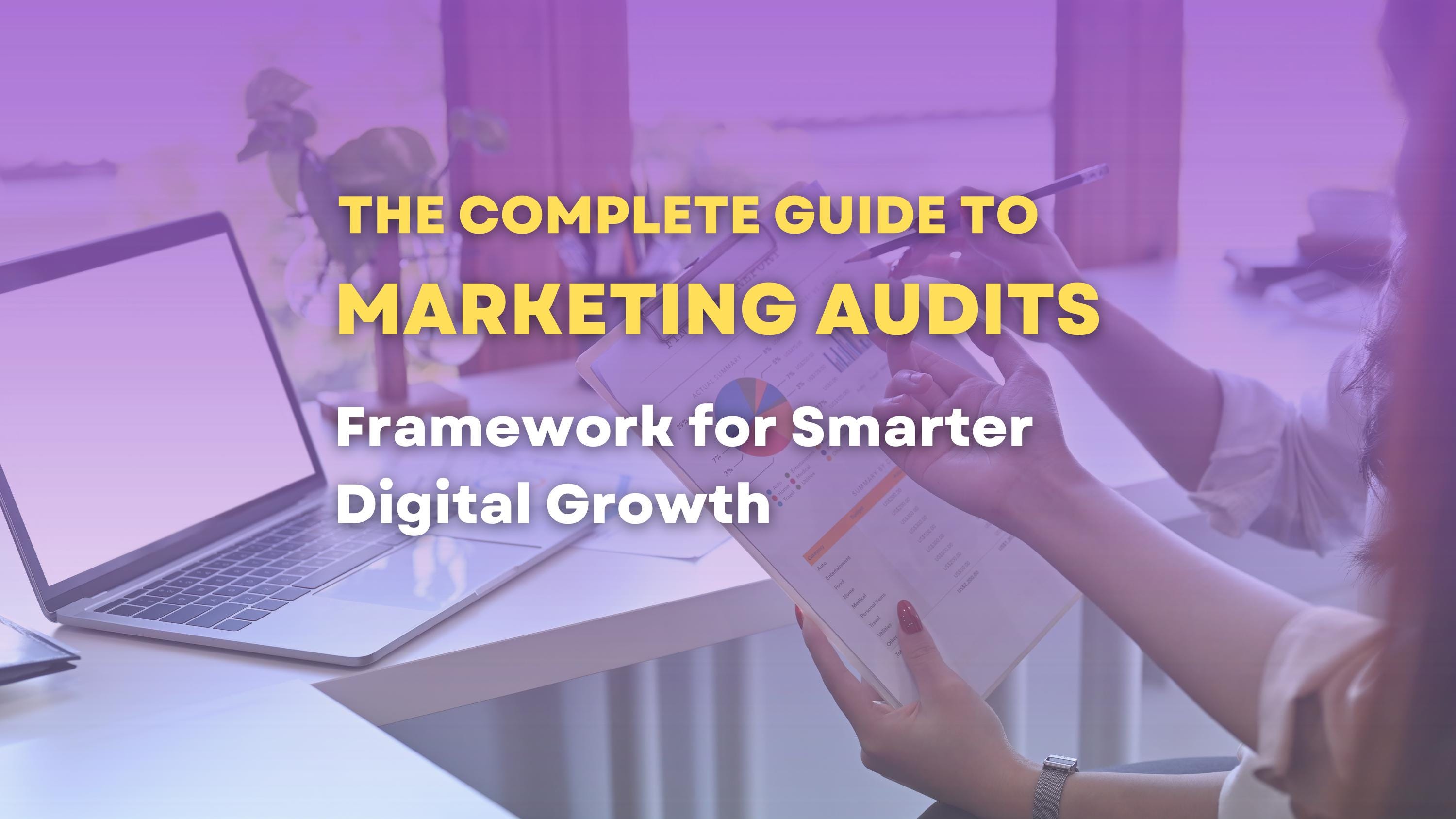Digital marketing is more competitive than ever. Every click, impression, and conversion has a cost—and businesses can’t afford to rely on assumptions.
A marketing audit is the key to understanding what’s working, what’s not, and how to optimize for sustainable growth. Instead of guessing, you gain a data-driven roadmap for smarter decisions and higher ROI.
What Is a Marketing Audit?
A marketing audit is a comprehensive evaluation of all digital marketing activities across the customer journey. It examines every touchpoint—from website performance and ad campaigns to email marketing, CRM data, and analytics. Unlike isolated reports or quick fixes, a marketing audit provides a complete picture of your marketing ecosystem. It shows:
- Which channels drive measurable results
- Where budget is being wasted
- How consistent your messaging is across platforms
- Whether the customer journey supports conversions
Think of it as a regular health check for your marketing strategy—ensuring long-term growth and efficiency.
Why Every Business Needs a Marketing Audit
- Identify Strengths and Weaknesses Detect where campaigns are successful and where they lose impact.
- Reduce Wasted Budget Redirect resources from underperforming channels to high-performing ones.
- Stay Competitive Markets evolve quickly. Audits keep your strategy up-to-date.
- Make Data-Driven Decisions Replace assumptions with actionable insights backed by analytics.
Common Risks Without a Marketing Audit
Businesses that skip audits often face hidden performance issues such as:
- Website & Landing Pages → Slow speed, poor mobile optimization, weak calls-to-action
- Advertising → Overlapping audiences, poor targeting, wasted spend
- Email Marketing → Generic campaigns, low engagement, declining deliverability
- CRM Systems → Duplicate or outdated records, missed opportunities
- Analytics → Incorrect GA4 setup, incomplete tracking, lack of visibility into ROI
These problems may remain unnoticed for months, silently draining growth.
The Marketing Audit Framework
Running a digital marketing audit doesn’t need to be complex. Follow this simple four-step framework:
- Collect → Gather data from all digital channels (website, ads, email, CRM, analytics).
- Analyze → Identify performance gaps, bottlenecks, and opportunities.
- Prioritize → Focus on changes with the highest business impact.
- Optimize → Implement improvements, test results, and monitor progress.
Examples:
- Website → Improve page speed and navigation, optimize CTAs
- Ads → Refine targeting, A/B test creatives, adjust budgets
- Email → Segment audiences, test subject lines, personalize content
- CRM → Clean data, automate workflows, integrate with analytics
- Analytics → Verify event tracking, connect GA4 with ad platforms, build dashboards
How Often Should You Run a Marketing Audit?
- Quarterly: Mini-audits on fast-changing channels like ads and social media
- Annually: A deep, full audit across all digital marketing activities
- Ongoing: Continuous monitoring and optimization as part of your growth strategy
This cadence ensures agility without losing long-term alignment.
The Role of AI in Marketing Audits
AI tools now simplify and accelerate audit processes. They help by:
- Summarizing large datasets into clear insights
- Detecting anomalies in ad performance or engagement
- Identifying gaps in CRM data or GA4 tracking
- Clustering email subject lines to uncover engagement trends
- Benchmarking performance against competitors
Instead of spending weeks reviewing spreadsheets, AI delivers structured findings in hours—freeing up time for strategic action.
Benefits of Regular Marketing Audits
Businesses that commit to audits gain:
- More efficient campaigns and reduced spend waste
- Stronger, more consistent customer journeys
- Higher ROI across all digital channels
- Clear visibility into what works and what doesn’t
- A scalable foundation for long-term growth
From Audit to Action
A marketing audit is not just about identifying problems—it’s about building a roadmap for growth. With structured insights, you can fix performance gaps, strengthen customer touchpoints, and scale what delivers results. To help businesses do this effectively, I created the Marketing Audit Guide—a step-by-step workbook for auditing websites, ads, email campaigns, CRM systems, and analytics.
👉 Ready to improve your digital performance? Download the Marketing Audit Guide

